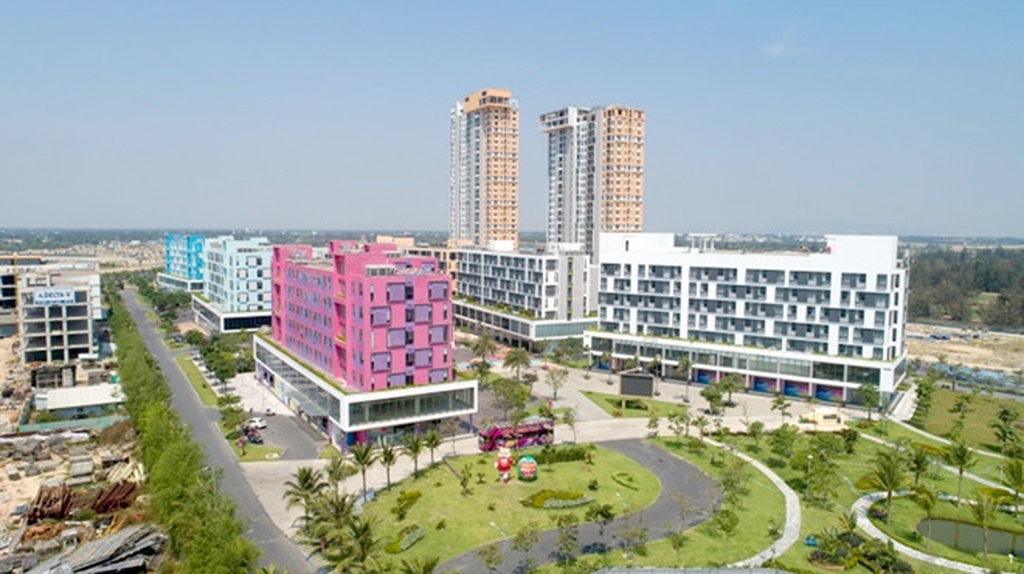Deposit rules for real estate transactions
Many people believe that the proposed 2% deposit limit for real estate transactions is too low, which might lead to clients and investors ready to forfeit their deposits when they no longer need them.
The deposits on real estate transactions, future development projects has been amended in the draft of the Real Estate Business Law reviewed and examined by the National Assembly during its 5th session.
Is the deposit rate 2% or 10%?
In particular, the drafting agency proposes in Article 24 of the latest draft of the Law: "The project developer of real estate shall only collect a deposit from the customer as agreed when the house, construction project has obtained a Construction Permit in cases where a construction permit is required, or has issued a notice of commencement of construction of the project in accordance with the construction law in cases where a construction permit is not required."

The proposal specifically states: "The deposit agreement must specify the sale price, rental price for houses, and construction projects, and the deposit amount shall not exceed 2% of the sale price, rental price for houses, and construction projects." This 2% restriction was determined based on the average guarantee charge, which is likewise 2%, and is intended to prevent the practice of deposits made merely for market investigation rather than capital mobilization.
Many advocates, however, argue that the 2% deposit cap is too low, making it simple for both clients and investors to forfeit deposits when they are no longer required. Some experts recommend a deposit rate of 10 to 15%.
According to Ms. Nguyen Thi Thu Hang, a legal officer of Vinhomes, the 2% deposit restriction is ineffective for both developers and clients. In today's market, developers and consumers can simply "break the deposit" if the deposit is less than 2% of the sale or rental price.
Ms. Nguyen Thi Thu Hang suggests that developers and clients discuss and agree on an acceptable deposit amount depending on the market circumstances. Businesses recommend a deposit equal to 50% of the original payment made to the developer under the sales contract (15% of the sale or rental price) if control is still required. It would be essentially meaningless if the proposed Law was followed.
However, Deputy Minister of Construction Nguyen Van Sinh feels that, because the project has not yet been created, a 2% deposit percentage is necessary to prevent capital mobilization abuse. Disputes will arise if the project cannot be implemented later. As a result, this deposit is primarily intended to assist developers to identify the market and early clients.
Relaxation or Tightening?
There are now two opposing viewpoints on the prerequisites for transferring real estate projects. Some National Assembly members feel that circumstances should be provided for developers who no longer have the capacity or motivation to carry out the project transfer in order to allow the project's continuous execution rather than withdrawing and resuming, which would be time-consuming.
In this regard, project developers who transfer their projects are not needed to have a Land Use Certificate or to meet any financial commitments associated to the land.
There is also an opinion that if the project developer has made decisions regarding land allocation, land leasing, and has fulfilled financial obligations related to the land, they are not required to have a Land Use Certificate for the entire or part of the transferred project.
Excessive limit ations on project transfer conditions for developers who no longer have the financial ability to carry out the project or are unable to satisfy the financial commitments associated with the land may result in projects failing to meet transfer criteria and stagnation.
Furthermore, tight monitoring of the beneficiary of the transfer will assure the project's continuous implementation, limit ing repeated transfers or takeovers of projects through the purchase of project developer shares.
A sustainable trend
Nguyen Duc Hai, Vice Chairman of the National Assembly, emphasized that legislation must establish circumstances for the real estate market to thrive while providing rigorous control for the industry's healthy, safe, and sustainable development.
Nguyen Duc Hai, Vice Chairman of the National Assembly, believes that the Real Estate Business Law, along with the Land Law and the Housing Law, have provided a legal framework for the development of the real estate market, contributing to the country's urbanization, industrialization, and modernization while ensuring citizens' legitimate housing rights.

The National Assembly continues to review and amend all three laws in order to institutionalize the Party's orientation and policies, address existing problems and shortcomings in current regulations, promptly adjust emerging issues in practice, ensure the legal system's consistency and unity, and create conditions for the real estate market to develop in a healthy, safe, and sustainable manner.
Nguyen Duc Hai, Vice Chairman of the National Assembly, suggests that the Economic Committee and the Ministry of Construction continue to collaborate with relevant authorities to investigate and offer the best solutions.
For issues that are inconsistent, provide choices, study and evaluate the benefits and drawbacks of each option; the Ministry of Construction will report to the Government and give its views to the National Assembly's Standing Committee for discussion and input.








